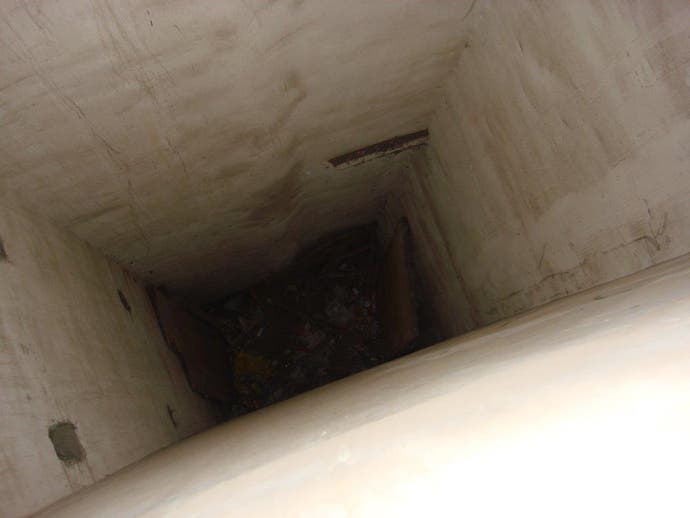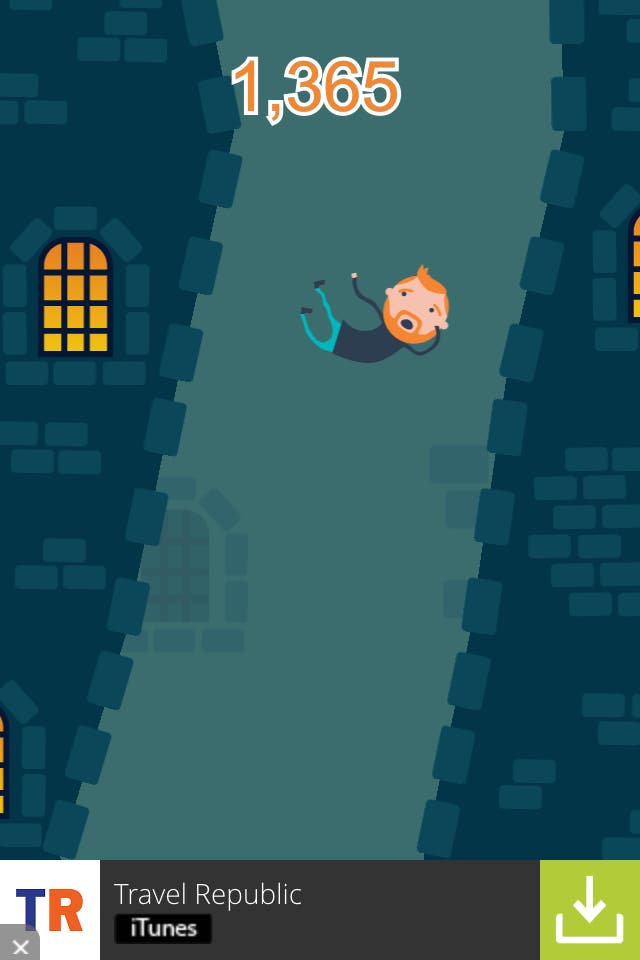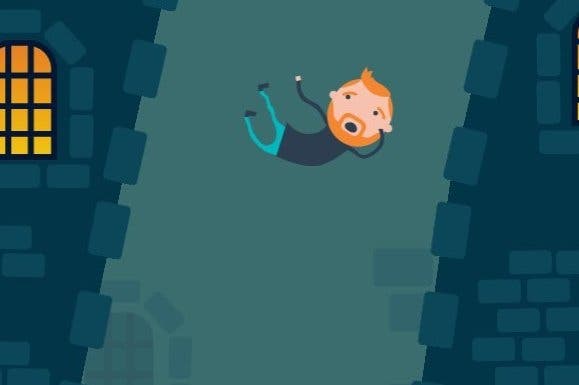How a nasty tumble in China led to the birth of a new developer
The hole story.
How's this for a video game origin story? Around seven years ago, Mark Major, a New Zealand university student working in China, was crossing the road when the ground opened up and swallowed him.
"I was going down to get a bottle of water from the local convenience store," he tells me. "I was living on a very busy street in Beijing, full of restaurants and those lanterns they put out at night. I just went down to the store, and that was my last memory."
Major woke up in a hole, about nine metres deep. Situated right next to the convenience store, this hole had been covered in plastic - plastic that Beijing's acid rain had steadily eaten into. While Major has no memory of the fall itself - not even the crash through a piece of wood on the way down that slowed his descent and probably saved his life - he will never forget the hour that followed.

"I was down there for a while," he says. "It was a very small space, about half the size of your average elevator. This was before smartphones were around, and I was trying to figure out what the emergency number in Beijing was. It's not 911 or 999." After a while, a pedestrian stuck their head over the side of the hole and called for a fireman. "The fireman got people off the street to pull me up," Major laughs. "They didn't have any winches or anything. They pulled me up by pedestrian power."
It's a terrifying thought: to get into such trouble in a country where you're a relative newcomer with only a shaky hold on the language. The worst was yet to come, however. A day later, Major hobbled into a hospital and was told, following an x-ray, that he'd actually broken his back.
"All spinal cord injury people speak in vertebrae," Major explains. "I broke my T6: thoracic, sixth one down. Cervical is your neck, then your thoracic, and then your lumbar is your lower back."
His T6 was a pancake, actually. Knowing next to nothing about spinal injuries, I initially suspected that this would leave him in a wheelchair. Not so: seven years later, Major's still able to walk. He plays sports and he's passionate about running. He's had to give up rugby, which is tough for a New Zealander, but he's also invented a very New Zealand way of treating his upper body stiffness. He's prescribed himself a course in kayaking. "Lots of twisting in kayaking!"

Throughout our conversation, Major constantly reaffirms that he realises how lucky he is. And yet it's clear that it has not been an easy road to recovery. Even now, he has to deal with constant nerve pain, and there's also the psychological weight of a serious injury - an injury that is still not well understood by many people.
It was because of this last point that Major's recently taken an unusual step. He's turned his most traumatic memory into a free smartphone game, an endless faller: direct, colourful, and wonderfully cheery. It's called Plummet, and it sees you controlling a cartoon version of Major, perfect right down to his ginger beard and perky quiff, as he falls through the earth avoiding obstacles. My current score is 5,988 feet. Major's is 18,000.
To produce Plummet, Major's set up his own games company, Broken Back Games. It's a company that works unlike any other I've heard of before. Major realised his strengths are in running a business and handling the PR, so he crowd-sourced the art and the game design using websites like 99designs, which allow you to draw on a vast community of artists and coders who will submit pitches to match your brief.

"I sent out photos of myself and the hole," laughs Major, who says it was important for him to emerge from his trauma with something positive. "I wanted something fun. I said in the design brief that it had to be cartoony. I used Plants vs Zombies as an example. When you're talking to designers and developers, you have to use a lot of comparisons, I've found, to get your vision across. So I went for Plants vs Zombies as the graphics comparison and Flappy Bird, the endless runner, for the gameplay."
And Plummet is hopefully just the start for Broken Back. "We officially incorporated this week," says Major with pride. "There's a startup incubator over here that's taken us on, and the plan for Broken Back Games is that we're crowd-sourcing out and bringing in designers and developers, and they're coming in and building the games in our community. We've got PR and marketing experts on board, and when the revenue comes back it's split out to everyone."
For me, what's most striking about Plummet isn't the frightening backstory, or even the unique approach a design novice has taken to setting up his company. It's that Major has found a way to open up the discussion around a topic that people tend to avoid, because they are scared by the topic, perhaps, or because they are scared that their ignorance of it will lead them to cause unintentional offence.
"I found that there was a lot of over-compensation around me at the start," says Major. "People would always offer me the chair and things like that. A lot of my family, close friends and fiance, they never used to talk about what happened to me because they thought it was a really bad event." Plummet has changed that. "Now, they talk about it every time I see them, I get emails from people who have spinal cord injuries, and they think it's great that I made a game out of it. People say that it's inspired them, particularly with how I've changed the lens over my accident.
"You go through a bit of a slump when you realise you have an injury and you start to understand the limitations of that," Major sighs. "I've realised that I have an injury but I can still do great things - and that the injury actually leads the way to do great things. That's where the game came from, and that's where the business came from. So my injury is now my income."

